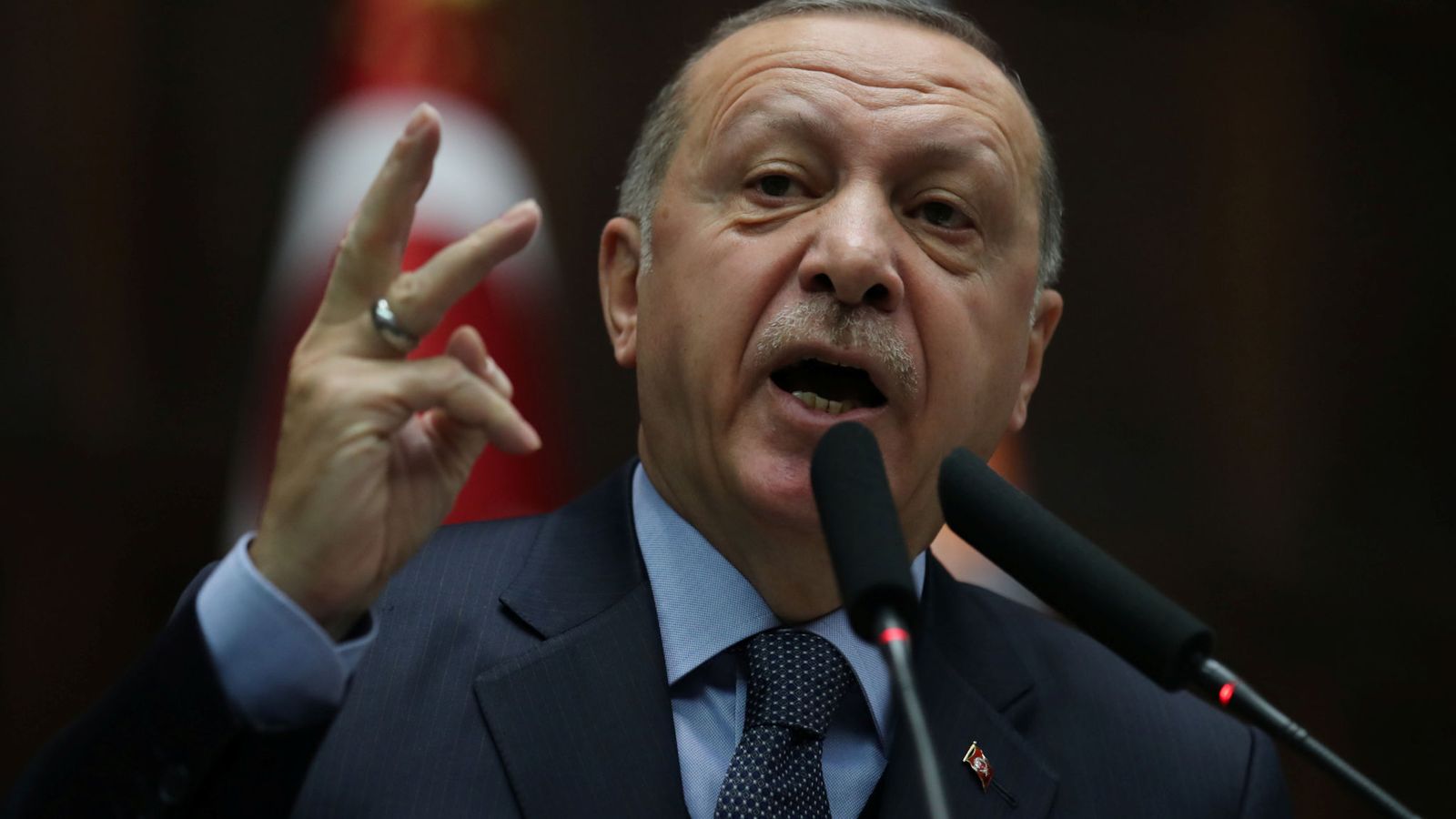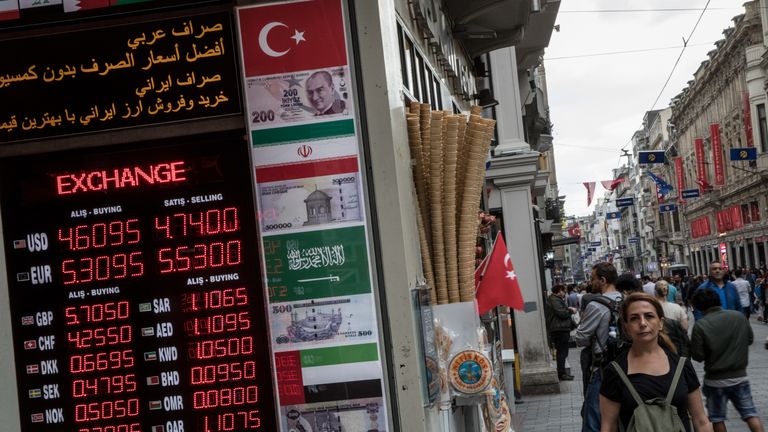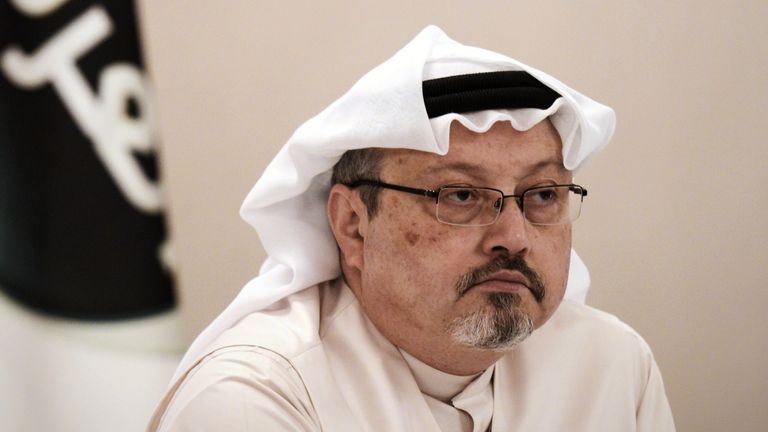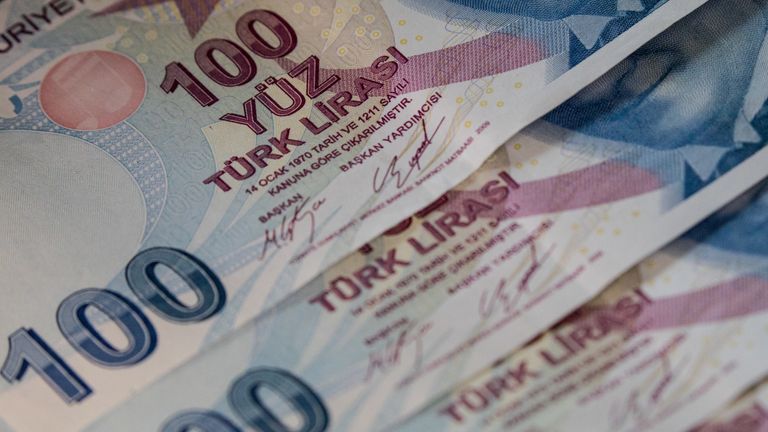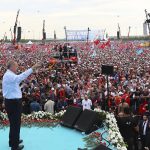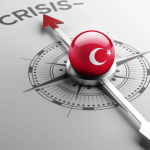Turkey found itself the centre of attention in financial markets when, last summer, a diplomatic row with the United States spilled over into a full-blown economic crisis.
President Recep Tayyip Erdogan, who had fostered a deterioration in sentiment by putting pressure on the Turkish central bank not to raise interest rates, retaliated after the US government imposed an asset freeze in August last year on two senior Turkish officials due to their role in the detention of an American pastor.
Within days, Donald Trump had raised tariffs on Turkish steel and aluminium exports, the Turkish lira was in freefall and the value of other Turkish assets plunged – sparking wider concerns in other emerging markets.
Calm, of a sort, was restored in September when the Turkish central bank shrugged aside pressure from Mr Erdogan and cranked up interest rates from 17.75% to 24% in an attempt to curb runaway inflation.
A visit to Turkey in October from Mike Pompeo, the US Secretary of State, also added to a sense that US-Turkish relations were back on track, as did Mr Erdogan’s co-operation with the US in investigating the murder of Jamal Khashoggi, the Saudi Arabian journalist.
The crash in the Turkish lira also helped make the country’s exports more competitive and, between August and November last year, Turkey even ran a trade surplus.
That also helped restore confidence – and even some bargain-hunting – among investors. After a cataclysmic summer, in which the Turkish lira fell to nearly seven to the US dollar, the lira had recovered to just over five to the US dollar by the end of January this year.
Now, though, the worries are back and a number of factors have contributed to that.
Firstly, inflation has remained stubbornly high, partly because the weaker lira has pushed up the cost of imported food, while poor weather and flooding towards the end of last year and in January pushed up the price of fresh fruit and vegetables.
Inflation stayed above 20% and, in food, was pushing 30% by January – although the headline rate of inflation slipped back below 20% in February. Sentiment also took a knock when it was confirmed in early March that, after the Turkish economy contracted at an annual rate of 3% during the final three months of 2018, the previously fast-growing country had entered a technical recession for the first time since 2008-09.
It was to this unpromising backdrop – a recession, rising unemployment, stubbornly high inflation and business confidence plunging – that Mr Erdogan entered a local election campaign that promised to be his toughest test at the polls since he first became prime minister in 2003 and president in 2014.
On the campaign trail, Mr Erdogan lashed out at what he called ‘speculators’, accusing them of selling the lira.
This was followed by news, last week, that the authorities appeared to be trying to prevent further falls in the lira.
Investors cracked down on ‘short sellers’ – investors selling lira they did not own in order to buy it back, at a profit, after it had fallen on foreign currency markets – by stopping local banks from lending lira to foreign borrowers.
Extraordinarily, by Wednesday last week, the overnight swap rate in Turkish lira, a measure of how much it costs to borrow the currency, had jumped 1,200% – making it almost impossible for foreign speculators to bet against the currency.
But this only leached away at confidence and prompted a fall of more than 5% in the main Turkish stock index the next day.
The cost of insuring against a default in Turkish government debt also shot up and, despite the restrictions, the Turkish lira continued to fall.
Figures published towards the end of last week revealed that, during March alone, the Turkish central bank had got through nearly a third of its foreign currency reserves trying to prop up the value of the lira.
Ironically, much of the more recent selling appears not to have been by speculators on the international currency markets, but by ordinary Turkish families seeking to protect the value of their savings by buying dollars and euros.
Not that the heavy-handedness of the authorities did Mr Erdogan any good. His ruling AK Party suffered a number of electoral setbacks, including the capital, Ankara, as well as Istanbul, controlled by parties linked to Mr Erdogan since he became the city’s mayor 25 years ago.
The concern for investors now will be that Mr Erdogan engages in short-term fixes in an attempt to rebuild his popularity rather than embark on the reforms needed to improve the Turkish economy’s competitiveness over the longer term.
Government debt is relatively low but there are still high levels of debt in the private sector, particularly among the banks, with loans to foreign creditors of almost $180bn falling due for repayment this year.
Economists have been downgrading their forecasts in anticipation of things getting worse before they get better.
Goldman Sachs, which was previously forecasting that the Turkish economy would contract by 2.5% this year, warned on Monday there was a risk that the deterioration turned out to be worse than that.
And, ominously, diplomatic relations with the US also appear to be under strain once again. The US today halted delivery of equipment needed for the new F-35 stealth fighter jets Turkey is buying from American defence giant Lockheed Martin. The move is in response to Mr Erdogan’s refusal to abandon an order for a Russian-built missile defence system.
That was enough to put the Turkish lira on the skids again. It has fallen by more than 2% against the US dollar today and has now fallen by 7% since last Wednesday against the greenback.
The Turkish central bank is expected to raise interest rates again later this month. Even that, though, is unlikely to do much to restore investor confidence in the country any time soon.
By Ian King
Source: Sky News
